There is significant intangible value in many of the things we take for granted. For example, essential resources such as the air we breathe and the water we drink and use are often taken for granted. Society expects these life essentials to be safe, and not much thought is given to how safe they really are. Only when an identified problem surfaces, do people get concerned and fear sets in. The electrical power and lighting that powers society has become a resource that is taken for granted. People generally don’t think twice about the electricity they use until it is not available. Then its lack is inconvenient and creates challenges they are not used to. The coffee has to be brewed in the morning and the TV has to work in the evening, not to mention meals that have to be cooked and laundry that must be washed and dried. Society just expects things to work. Another expectation is that the electrical system within their dwelling or place of business is safe.
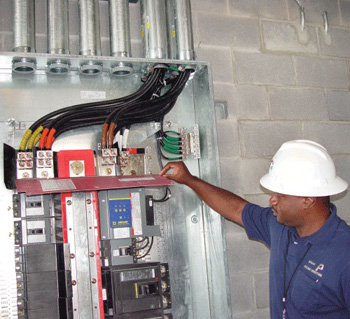
Photo 1. An inspector at work
Why Is It Safe?
Did you ever wonder how safe an electrical system really is? Think about the dwelling where you live and the business where you work. Electrical wiring is often buried within the hollow, inaccessible construction of the structure, so it would be difficult to detect deterioration of the electrical wiring. Most people just assume it is safe. Out of sight, out of mind, so to speak, so the question arises, how safe is the electrical system, and what are the reasons it is safe? What impact would it have if it were not safe? Could the building be subject to fire? Could the residents or building occupants be subject to electrical shock or even electrocution? The answer is, when electricity is in the mix, all of these events are possible. So what makes our electrical systems safe? They are safe because of qualified persons installing and qualified electrical inspectors verifying that minimum requirements are met for installations that are essentially free of electrical hazards. This article looks at the value of qualified electrical workers, and specifically the value of qualified electrical inspectors and the unseen job they perform on a daily basis so an expecting society can live safely.
Qualified Electrical Work Force
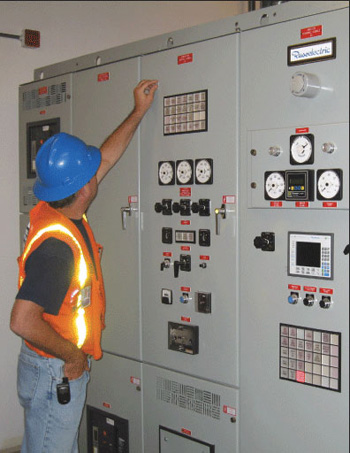
Photo 2. Generator paralleling equipment
Working in the electrical field requires training, and lots of it. The uniqueness and intricacies of the electrical field warrant extensive training initially for one to become a qualified and competent industry professional and require continuing education. Many states and local jurisdictions have laws that require these qualified workers to be licensed and to maintain their licenses through continuing education. This is essential because the electrical field is so dynamic. New technologies, methods, and products are constantly being introduced and installed. Not only do qualified electrical workers need to stay informed and trained in current technologies and applications, electrical inspectors really do too. Staying current is an essential part of their jobs.
Unsung Heroes — The Electrical Inspectors
The responsibilities of a building safety inspector are enormous, especially so for an electrical inspector. The value of what they do is an intangible, necessary benefit to society. People not only expect the electrical wiring to work, they expect it to never fail, and they definitely expect it to be safe. The services provided by electrical inspectors can be compared to other professions that relate to safety, such as fire department workers, police department workers, and medical workers. The difference is that these aforementioned heroes are very visible to the general public. The services of building safety inspectors are not often visible to the public, but the resulting installation and service it provides is.
The Responsibilities
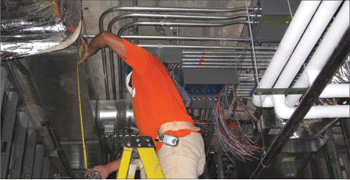
Photo 3. Installers work to achieve code-compliance; inspectors verify it
It’s a tough job, but someone has to do it. Does that phrase sound familiar? Think about the responsibilities of a police officer, a fireman, or a doctor. The safety services they provide help protect people and save lives. The services they provide are based on needs at a point in time. When people become ill, they seek the services of medical personnel. If a building catches fire, the fire department will respond, hopefully, in time to save the lives and the building if possible. The police officer responds to speeding vehicles, crimes being committed, and other actions requiring intervention of law enforcement. All of these services are associated with the safety of society, but are provided in a reactionary fashion for the most part. In comparison, the unsung heroes—the electrical inspectors—furnish services that proactively provide environments safe from the hazards of electricity which can injure or kill people just as quickly as do fire or crimes. Electrical inspectors can prevent the smoke from happening, yet they never get much credit. In fact, electrical inspectors usually get negative attention because of the job they must do, such as sometimes rejecting an installation, which is not necessarily the popular thing. So the inspector often gets a bad rap for doing a good job.
Benefits of Electrical Inspection
Although construction code inspectors are often viewed as a necessary evil, there are significant benefits of a quality inspection program. This article is built around the value of electrical inspection. When one takes a close look at the value of electrical inspection, a few things come to mind. One value is the peace of mind that comes from knowing an electrical system is essentially free from hazards because it was inspected. For many, this is the most important value, but the business of electrical code enforcement provides other monetary values. It might not be viewed as an economic value or advantage, but in the bigger scheme of business, a good electrical inspection and building safety program can result in significant value for consumers.
The Insurance Services Organization (ISO) is concerned with providing accurate assessments of the services jurisdictions provide that result in safer buildings. Where inspection departments are providing quality and sufficient building safety inspection and plan review services, those jurisdictions are awarded a rating that can often result in lower insurance rates. Sounds like a pretty good value, safety, peace of mind, and lower insurance rates. What are the ISO ratings awarded to the jurisdiction in your area? These can be a good indication of whether public safety is deficient and in need of improvements. The fortunate aspect of knowing this information and understanding its impact is that jurisdictions can become proactive so the services they continue to justify provide the desired results.
Another intangible value that electrical inspectors provide is the contribution to the electrical Code development process. The electrical inspector is represented on each NEC code-making panel. The value they provide is asserting the voice of code enforcement in this process to assure that the safety rules produced in each new edition are practical, understandable, and, most importantly, enforceable. The International Association of Electrical Inspectors is committed to supporting this Code development process for these reasons and to promoting electrical safety through uniform application and understanding of the electrical codes and standards. Electrical inspectors also provide value to the product safety standards development through their contributions on the standards’ technical panels and the UL Electrical Council. The electrical inspector provides diligent service to the industry in these two areas, but it all happens out of the limelight. The recognition is not important, the service is. That is why they unselfishly give their time and expertise to this segment of the electrical industry. Electrical inspectors are teachers as well. The job they perform usually results in learning.
The Electrical Safety System
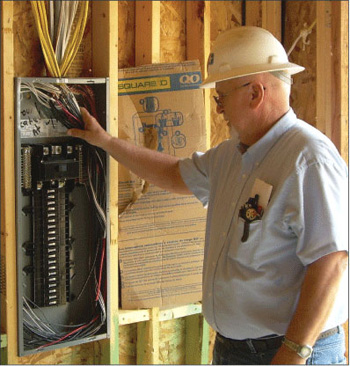
Photo 4. Violations are evident to inspectors
From the beginning, the quest to understand and use electricity has been an adventure. Lives have been lost, injuries sustained, and buildings have burned. Not long after electricity was discovered and refined to a usable status, society was provided with significant evidence of its force and how dangerous and even lethal it can be when not installed and used properly. Insurance companies recognized early on that regulation of electrical installations and the use of electricity were necessary for safety of persons and property. Insurance companies played an important role in the initial development of the National Electrical Code we use today. The North American Electrical Safety system has had an unprecedented role in developing necessary codes and standards relating to the safe electrical installations. Safe electrical installations of today resulted from years of experience and knowledge gained by unfortunate events that led to losses. This is the harsh reality of this powerful force, that society views complacently. The electrical industry has a long history of establishing an unprecedented electrical safety system that is every bit as effective and necessary today as it was in the past. In many cases even more so, as a result of today’s more complex, intricate electrical power systems and their diverse use. The safety afforded by regulation cannot be taken for granted at all.
The electrical safety system is the reason society can live and function in an electrically safe environment. Some essential elements that make up the electrical safety system that provides this protection are the qualified electrical testing laboratories, manufacturers, a qualified electrical work force, and quality electrical inspection of installations, equipment and systems. Each of these entities plays an important role in the safety we are afforded. Without a doubt, safe electrical installations are the result of each of these entities fulfilling its role in the electrical industry. Without all of them working for the same objectives, safety can be, and often is, compromised. It’s something to really consider when asking questions such as how safe is an electrical installation? What are the contributing factors that ensure it is safe?
The Role of Manufacturers
How do electrical product and equipment manufacturers contribute to the electrical safety system? By building quality products that meet or exceed the minimum electrical product safety standards that have been developed and established through research and experience. Time has provided the opportunity to invent and develop electrical products and equipment and often through the school of hard knocks, electrical safety lessons were learned. It’s a shame that lives had to be lost, injuries sustained, and properties damaged or lost along the way, but that is the nature of this powerful force. Electrical equipment manufacturers have come to depend on the established electrical safety system for the success of their business. By manufacturing equipment to meet or exceed minimum electrical standards, there are reasonable assurances that it will provide the level of service anticipated by a wealth of continuous industry needs. By having electrical products evaluated and tested to developed standards, their products become very marketable in an electrical industry that creates such demand. These manufacturers find comfort in the third party evaluation and testing and product certification process because they understand how valuable it is from a liability, marketing, and safety standpoint. It stands to reason that our electrical safety system is very dependant on electrical equipment manufacturers fulfilling their role in producing and certifying products that will meet the minimum standards for safety while providing a supply to the electrical industry.
The Role of Safety Standards Development Organizations
Did you ever wonder what is behind an electrical product certification mark such as UL, CSA, ETL, MET, TUV, or others? These marks of electrical products serve as an indicator to the electrical industry and society that a product meets the safety criteria for which it is intended. There are many qualified electrical testing laboratories in the industry today. It has become big business, and rightly so, with the ever-expanding use of electrical energy. The role of the qualified electrical testing laboratory is to determine that electrical products are essentially safe by verifying they meet the minimum requirements in established electrical safety standards. This awards an electrical manufacturer with recognition as a qualifying contributor to electrical safety. The qualified electrical testing laboratories play an important role in the electrical safety system because their work provides the electrical code enforcement community with a strong basis for their approvals. When inspectors are faced with equipment that does not bear such a mark indicating it meets electrical safety criteria and standards, the approval process is more difficult. Many authorities having jurisdiction base their approvals on the use of equipment that has been safety evaluated by a qualified electrical testing organization, such as those mentioned above. This is an essential part of the electrical safety system and is the common inspector approval criteria utilized where approvals of electrical equipment and installations are sought. From the beginning of electrical history, product safety evaluation and testing has been there and has seen the growth and demands paralleled in this industry. It is logical that the electrical safety system depends on the continuous contributions and services provided by qualified electrical testing laboratories and standards writing bodies.
The Role of Inspectors and Inspection Jurisdictions
Being involved in electrical inspection and promoting electrical safety through quality code enforcement is a noble profession. Many of the qualified electrical inspectors in the business today have evolved from being qualified electrical workers to becoming qualified electrical inspectors. Their contributions to the electrical safety that society enjoys today are taken for granted and expected.
There is no room for complacency when it comes to safe electrical installations. The role of the inspector is vital to the industry and as this industry progresses to include more and more advanced technologies and methods of electrical power distribution, the importance of the electrical inspector and his or her role are self-evident.
The responsibilities of electrical inspectors are focused on safety. That’s why they have chosen that career path. The service they contribute helps people. It is important to recognize that those that are knowledgeable about the electrical field understand the hazards electricity can bring to persons and property if it is not properly installed. Inspectors have a serious responsibility and the consequences of not fulfilling those obligations can be severe. So how important is the role of electrical inspector to the electrical safety system? It is extremely important, yet immeasurable. No one can place a dollar amount on the value of the job the inspector does; but examine the many cases where safety is not put first and the results are property losses and injuries and death. How essential are the services provided by electrical and other construction code inspectors? The answer rests with the consumer. The public wants electrical systems to provide quality service without interruption, and they just expect it to be safe. Therefore, the role and services of the electrical inspector are equally as essential as the visible services and work of the fire and rescue teams and the law enforcement departments. They are unsung heroes and their work is as essential today as it was back in time when society first started working with this powerful force.
IAEI Focus on Electrical Safety
IAEI is committed to electrical safety and the role of the electrical inspector and has been since long before the official establishment of the organization. IAEI continues to promote the uniform understanding and application of electrical codes and standards to installations and systems. This is an essential element of the electrical safety system. The focus of IAEI has always been on safety, and the value of the electrical inspector has always been in the interest of the association. Our industry would not be where it is today, nor would it be as safe, if it were not for the electrical inspectors and the job they do. Although the electrical inspector might not have the front page publicity of police officers, firefighters, and other emergency response team personnel, they are truly equally as valuable because their work is proactively resulting in electrical safety for society in general and, more specifically, for families and the way of life we’ve come to expect.
These dedicated members of the electrical field don’t expect recognition for what they do; they have chosen this career path because in their hearts they know and understand the importance and the need. Electrical code enforcement officials are necessary and the value they provide to society is more than just evident, it is undeniably essential.



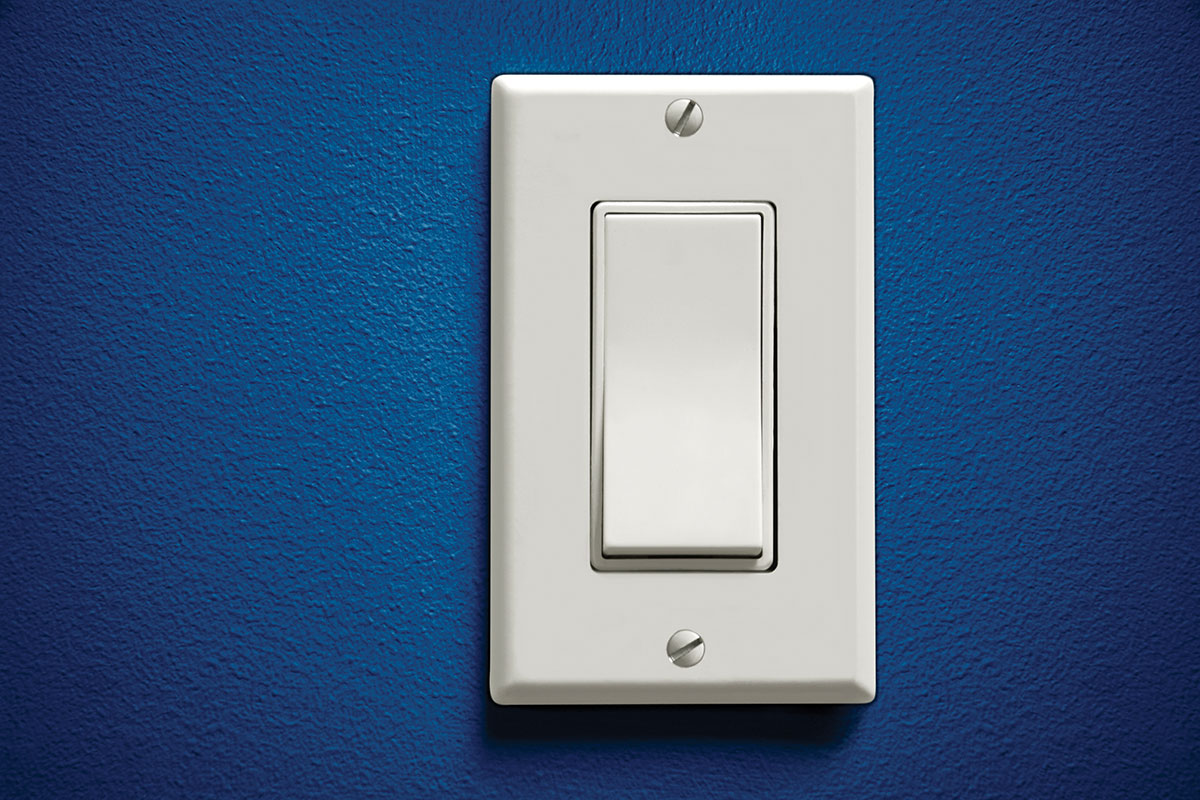
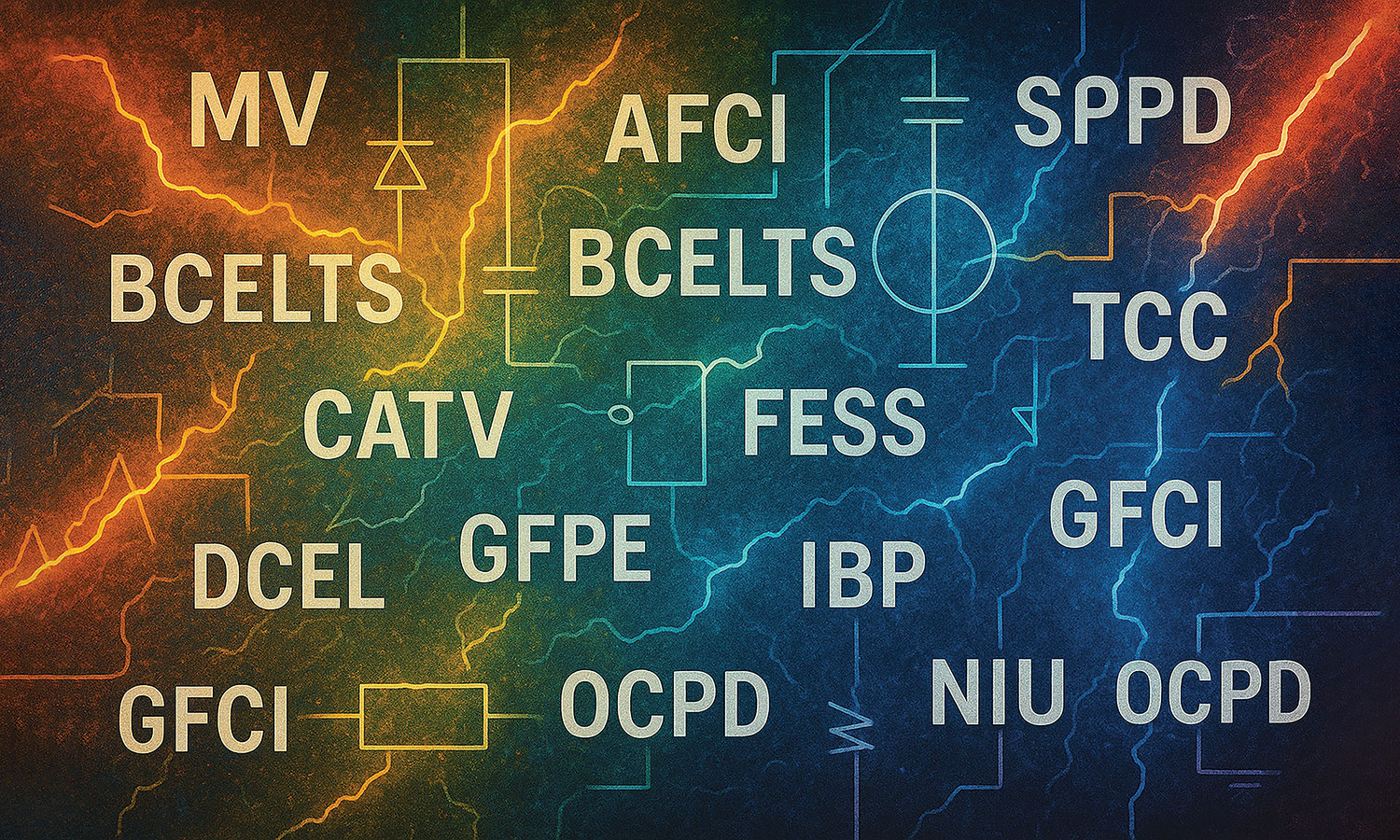






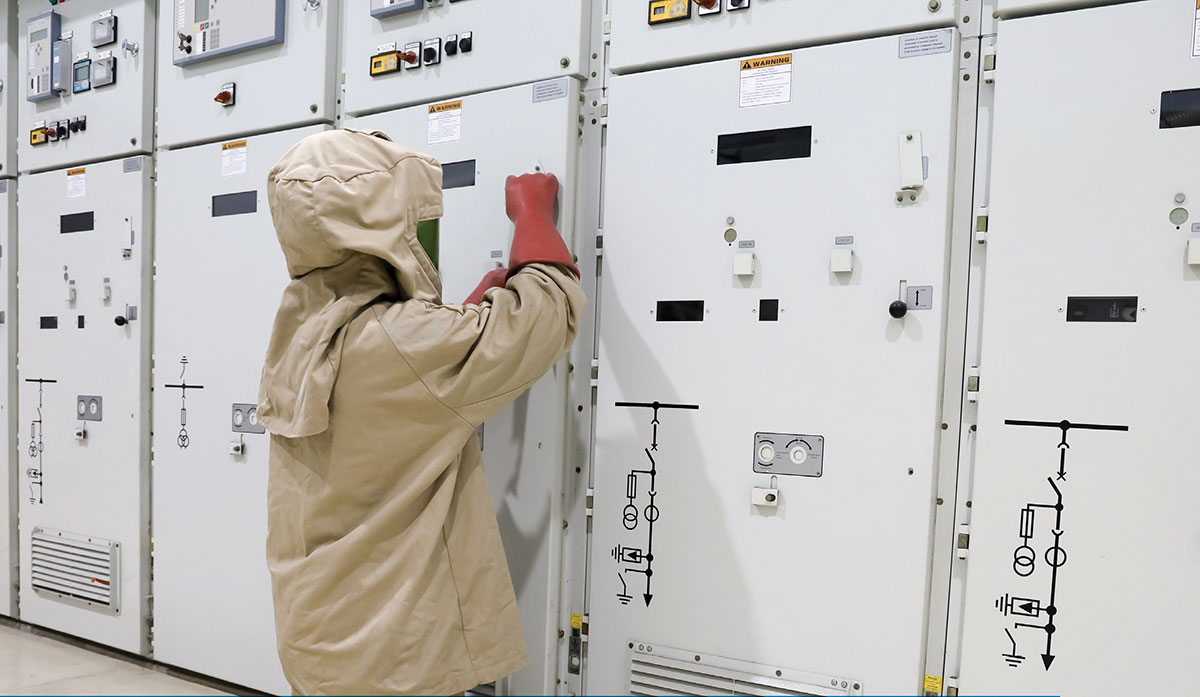
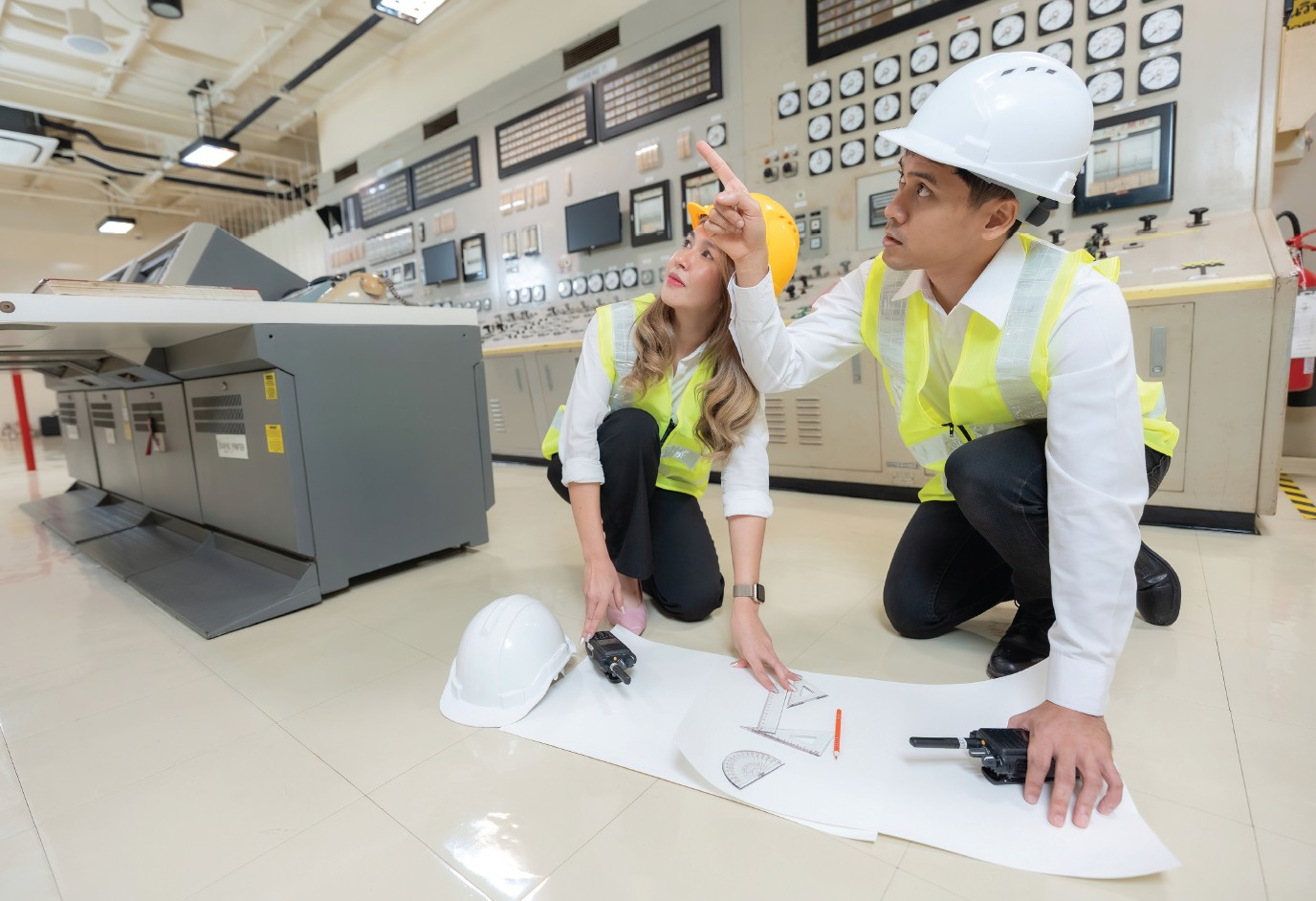

Find Us on Socials